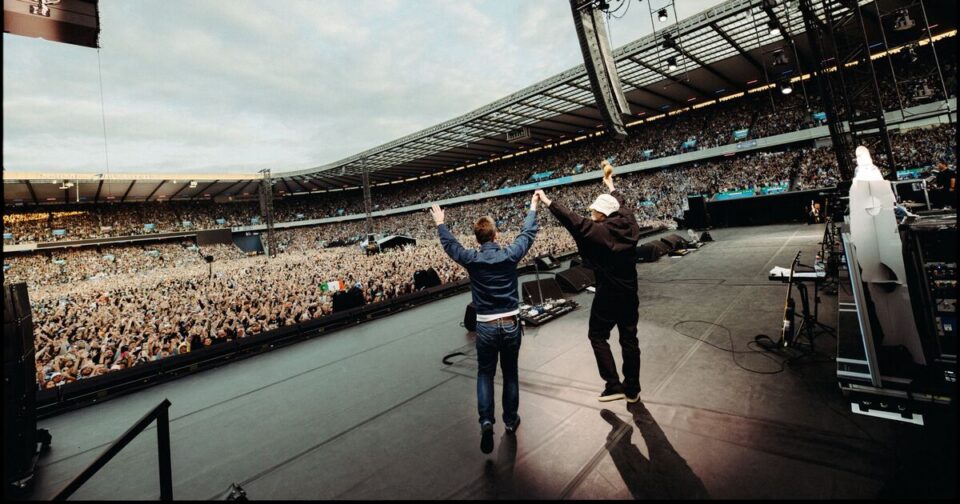Criminals have exploited the Oasis reunion tour this summer to fuel record-breaking ticket scams across the UK, with victims losing over £6.2m so far.
The hunt for tickets to see the Gallagher brother’s back on stage has dominated the online ticketing market, with fraudsters reaping havoc alongside genuine sites trading in tickets for the array of shows.
But tragically music-loving victims are losing an average of £436, and total losses this summer for Oasis shows alone now exceed £2 million.
The figures from the National Fraud Intelligence Bureau show that ticket fraud is escalating rapidly across the UK, with 2025 already eclipsing 2024 in both number of cases and financial losses.
Ticket fraud includes scams involving fake or non-existent event, travel, or entertainment tickets. The data, which was analysed by Italian restaurant Lucia, which hosts ticketed events, revealed that as of last week, 5,811 incidents and £6.2 million in losses had been reported compared to 4,959 reports and £5.1 million in losses for all of 2024 when Taylor Swift’s Era’s Tour hit the UK
The high demand for Oasis’s reunion tour tickets appears to have created the biggest surge with over half of all concert ticket scams reported by Lloyd’s customers in 2025 tied to the tour.
The Bureau’s data shows Oasis’s North West home as having recorded one of the most dramatic increases, jumping from 550 reports in 2024 to 837 so far this year, a 52% increase. Losses in the region also nearly doubled, from £394,000 to £747,000.
London, which continues to see the highest number of reports overall, climbed from 1,196 to 1,363, with losses rising from £1.4 million to £1.7 million. The West Midlands also saw a significant increase, up from 334 to 430 reports, with losses rising to £480,000 from £375,000.
Georgina Pellant, marketing & events manager at Lucia said: “Fraudsters prey on high‑demand events like the Oasis reunion tour. Fans desperate for tickets often fall for fake offers on social media and resale sites. The financial loss isn’t just money; it often turns anticipation into heartbreak.
“Buying tickets from trusted sellers is the best defence. If the offer comes through Facebook or an unofficial site, then it is best to avoid it altogether.”
1. Only Buy from Official Sellers. “If a ticket isn’t being sold through the event organiser or an authorised reseller, there’s no guarantee it’s real.” Always start with the official venue or artist website. Avoid deals on social media or unverified resale sites.
2. Be Wary of Prices That Seem Too Good. “Massive discounts on sold-out shows are almost always a red flag.”
Scammers lure buyers in with the promise of a bargain but it’s often a scam or a duplicated ticket that won’t scan.
3. Use Secure Payment Methods. “Never pay by bank transfer or gift cards, only use credit cards or PayPal, which offer protection.” If a seller insists on a direct transfer, walk away.
4. Double Check URLs and Social Media Profiles. “Fake ticket sites often look legitimate even copying the branding of real ones.” Check for spelling errors, unusual domains, or new social media pages with few followers.
5. Report Suspicious Listings and Fraud Immediately. “Act quickly if you suspect you’ve been scammed as you may help stop someone else from becoming a victim.” Contact your bank, the platform where the listing was posted, and report it to Action Fraud.
